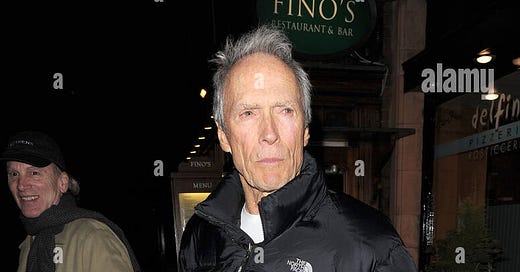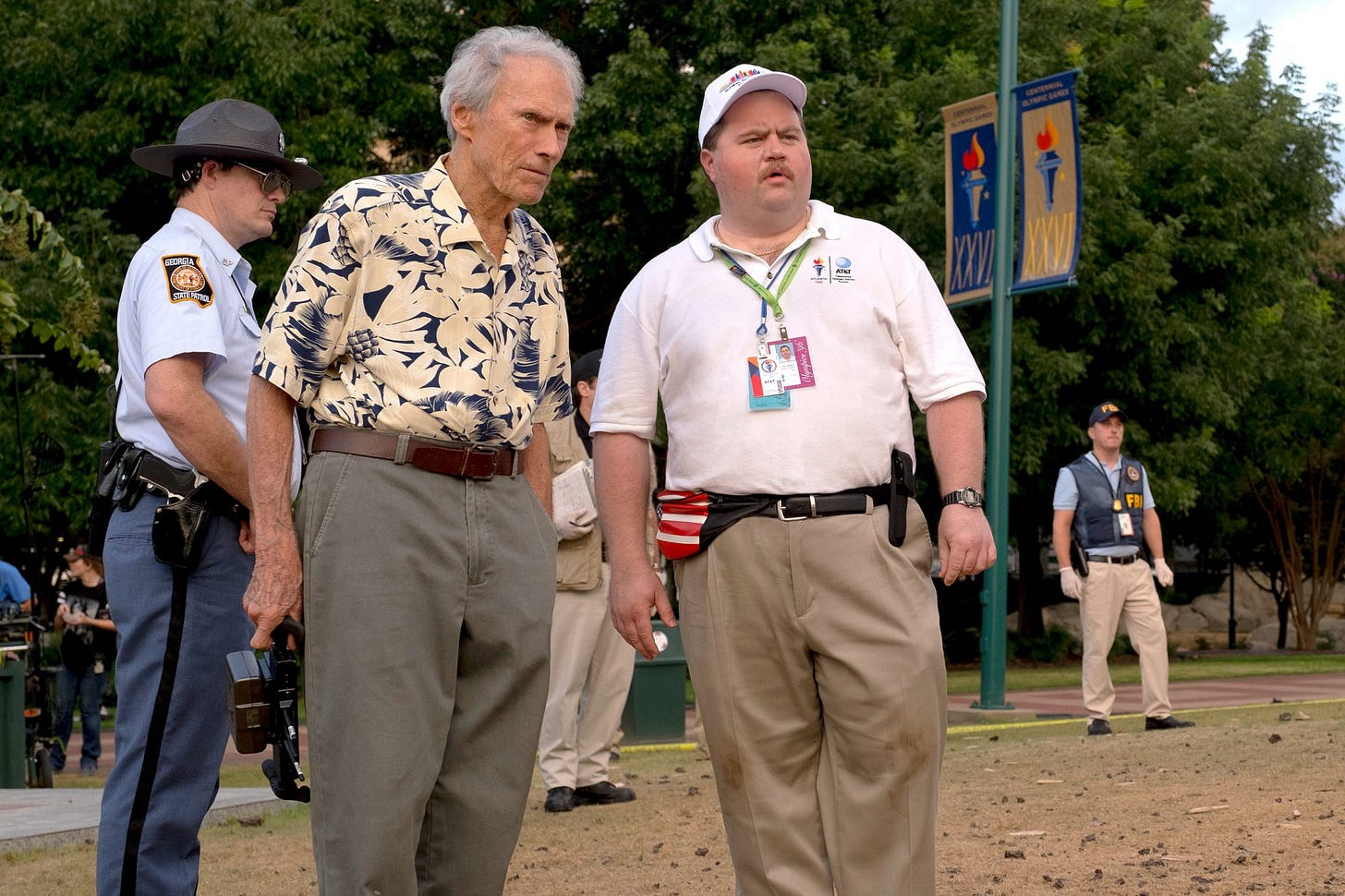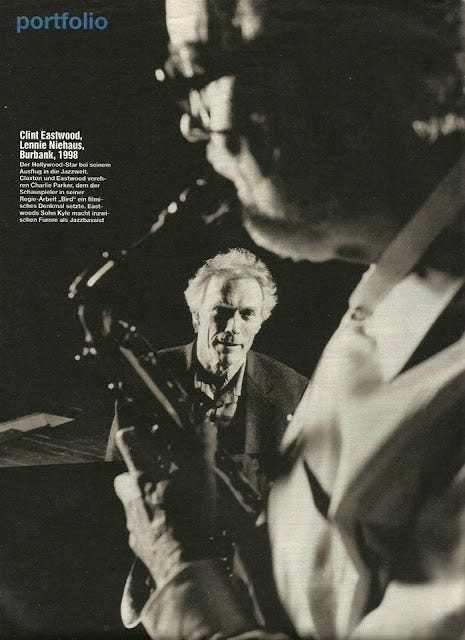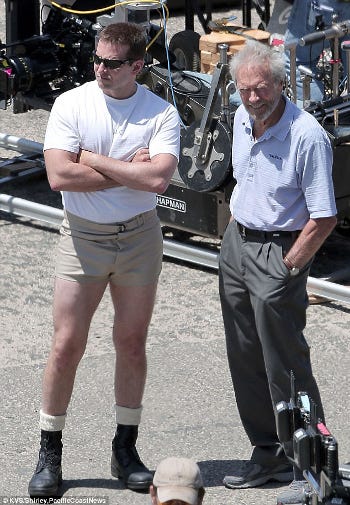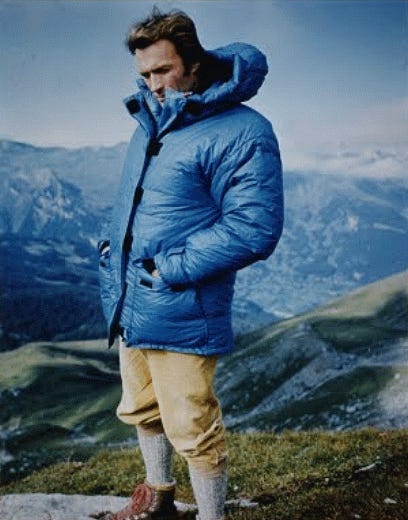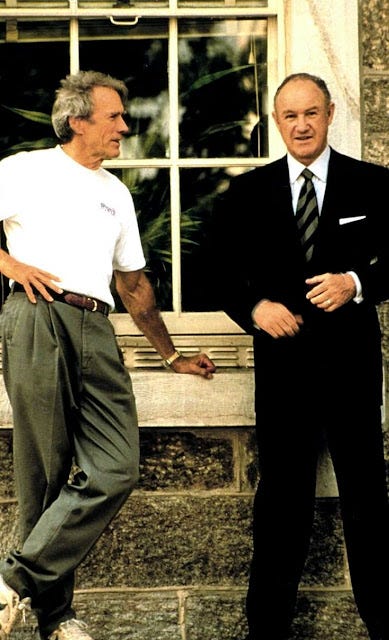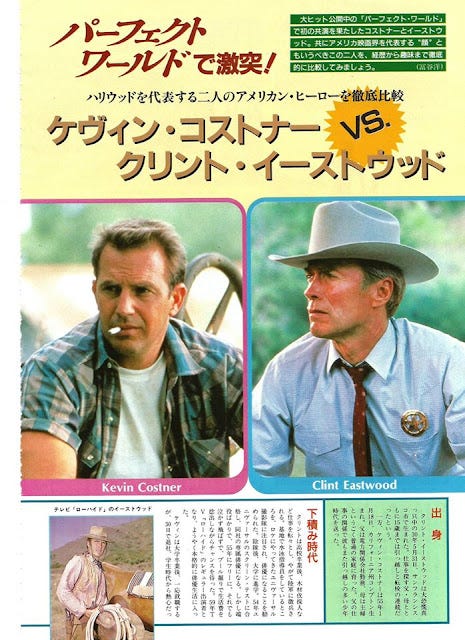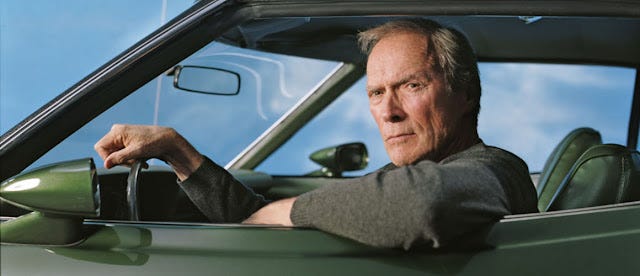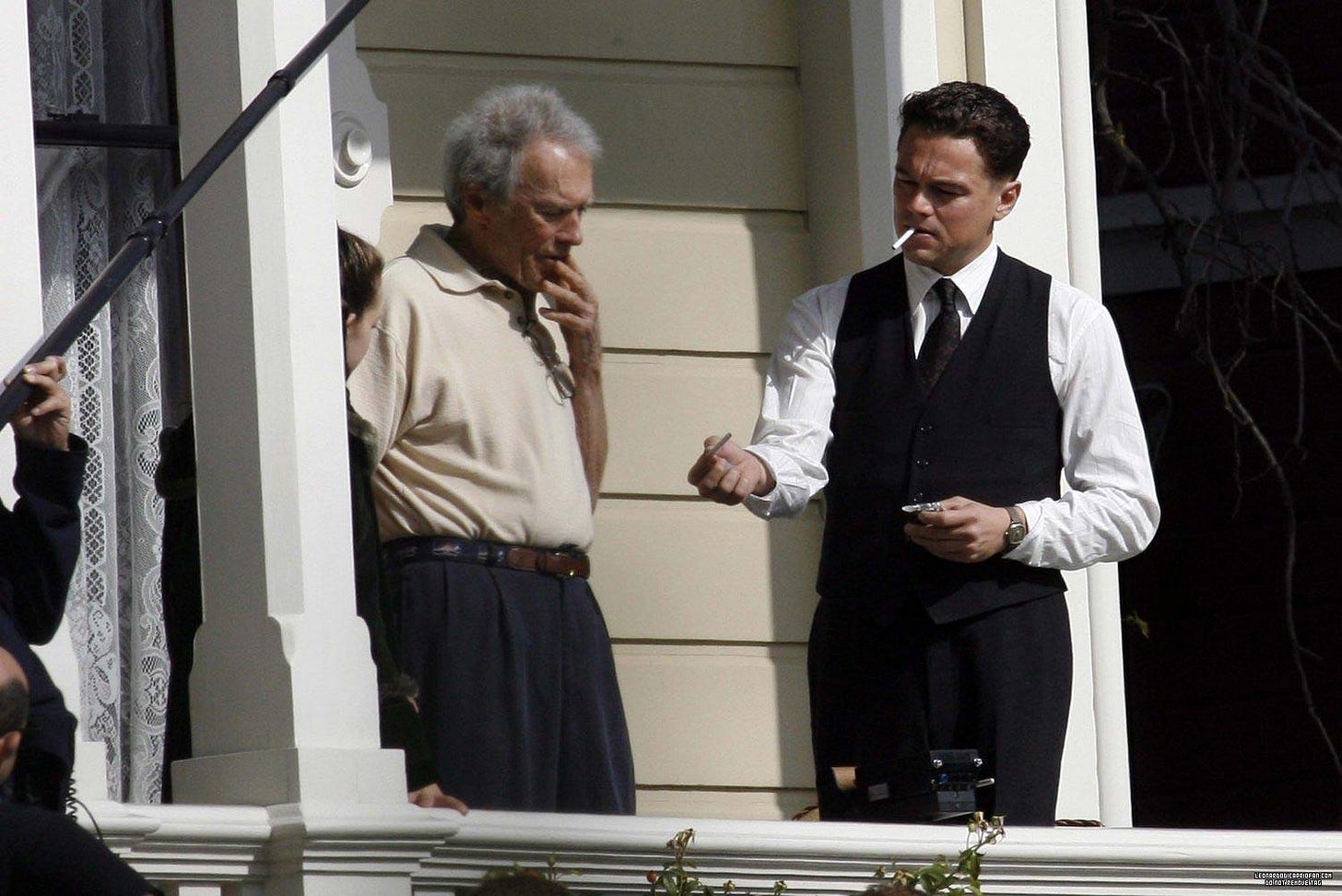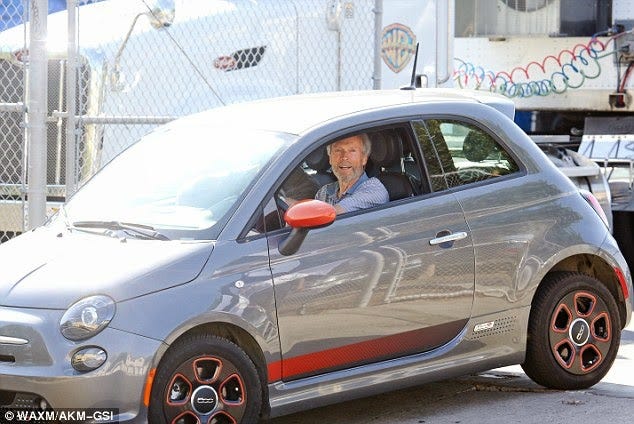I’ve been obsessed with Clint Eastwood lately, so I decided to make a list of all the Eastwood movies I watched along with a general impression. Cool? Cool.
Richard Jewell: This one caused a lot of shit when it came out. Olivia Wyld’s character, based on a real person, is evil. Some people felt like Eastwood was saying, “look, women make shit up to get ahead in the world.” Is there some underlying sexism at play, I’m not sure, maybe, but I can’t say that Eastwood’s unfair in his criticism of the media. Paul Walter Hauser is fantastic in this and his performance is one of the best of this decade.
Bird: Okay this is a weird one. Clint Eastwood doing arthouse. The trailer is misleading, the film is WILD. Eastwood makes a biopic of the famous trumpet player Charlie “Bird” Parker. The editing feels as improvisational as the subject, and sometimes you don’t even know where you are. The experience is nauseating and beautiful. It’s his most Godard film. I don’t have a lot to add that Richard Brody from The New Yorker hasn’t already said.
American Sniper: Another divisive one. Upon release, I remember this being a massive movie, at the same time everyone I knew thought it was awful. I didn’t see it for the longest time, but now it’s my favorite Eastwood. Themes of perfectionism, competition as the driving force of individual spirit, where competitiveness leaves people rewarded in one area and stranded in others, and the demands put on certain people (in this case soldiers at war) without any regard for them when the job's over. The trailer is, again, misleading. This is less a war film and more of a sports film. Chris Kyle develops a very unique relationship, competition between himself and the top-rated Iraqui sniper, nicknamed Mustafa. Watch with an open mind.
The Eiger Sanction: This straight fucking rips. It's another Eastwood film about the competitiveness of the human spirit with all its rewards and pitfalls. The story is about an ex-assassin turned art history professor/pro climber who must return to assassinating for one last gig. Of course, this involves a lot of climbing. Shot on location on the Eiger Mountain, Zurich, Zion Park, and Eastwood does all his own climbing and stunts. One of the climbers even died on the Eiger while in production. A nutso movie that you must watch on the biggest screen possible.
The Bridges of Madison County: Eastwood made Unforgiven in 1992, and was a hit. It's the film that transitioned him from an action director to a serious one. His next film A Perfect World continued this trend by costing less and making even more money. So, now he has this reputation as the guy who can works fast on a shoestring budget and make massive profits. Spielberg owned the rights to the book adaptation and came to Eastwood to play the male lead. Spielberg had plans to direct it himself after Schindler's List, but he became too busy to do so. Nobody knew who would play the female lead. Spielberg didn't want Meryl Streep. He brought up Isabella Rossolini, Anjelica Huston, Jessica Lange, Mary McDonnell, Cher, and Susan Sarandon for the role. But Eastwood wasn’t willing to budge and continued pushing for Streep. Thank god. As good as those other actors would’ve been Streep feels perfect and hasn't topped herself. It feels like she’s acting alone because the rest of the cast is so bland. Even Eastwood comes across like a cold unreachable statue. But he’s always been like that so it’s fine here too. Great movie, cried a little bit.
Absolute Power: I didn’t finish this one because I got distracted and was playing too much chess. I turned it off to watch, but I’ll finish it later. There’s a scene towards the beginning that’s Eastwood’s most metatextual. He plays a thief who witnesses the sexual assault and murder of the wife of a wealthy political donor. She was having an affair with the president played by Gene Hackman until he gets too aggressive. She threatens to kill him, then his aides run in and shoot her. Eastwood watches the scene go from innocent sex play to full-blown murder and is unable to do anything about it. He's putting himself in the same predicament as the audience. This scene reminded me of Michael Haneke’s Funny Games, released the same year. The film forces the viewer to watch, and take part in the torture and death of a small family. I couldn’t tell you how it ends, but from what I saw Eastwood is at his most self-aware.
A Perfect World: Eastwood’s most philosophically dense. It’s difficult describing this film because the plot feels so familiar it verges on flat. Escaped convicts, on the run, hostage, murders, stand-off, hostage escapes. But it’s not the plot that matters as much as what happens between all those things. That's where the movie's intense feeling of freedom comes from, and within that freedom lies truth. I won't say anymore because the experience of watching it would be better raw. Watch it. Most Eastwood fans agree it’s the GOAT.
Gran Torino: This one caught me most by surprise. People say this is his most racist film, but I disagree the film itself isn’t racist, but Eastwood’s character is. He embodies the cliched dad line, “I can’t be racist, I hate everyone equally,” perfectly. This is a very hard film to pin down because Eastwood has never been a religious director. In fact, he’s talked openly about distrust for organized religion. If he had to define himself I would assume he’d call himself a pragmatist. Use whatever you need in order to get through the day, but don’t fool yourself into believing what isn’t there. His films are always political. They’re about big themes: democracy, justice, individual responsibility, generational trauma, and what it means to be a good person in the face of an unfair world. In this movie, the Catholic concept of confession as a means of salvation is heavily picked apart, and what Eastwood leaves is the power of sacrifice in the name of goodness. This is as close as we’ll ever get to Clint Eastwood doing his take on the Passion of Jesus. And it’s remarkable.
J. Edgar: This is most likely Eastwood’s most snubbed film. The left critique is that Eastwood didn't emphasize Hoover's negative qualities enough; the right hates any suggestion that Hoover was gay. They’re wrong to discredit the film this way. It’s not interested in offering moral prescriptions, it presents the man as he acted. Throughout his life, he was an incessant self-mythologizing figure who amassed immense power. The film's power lies between the private life and the public. In the case of J. Edgar, we watch the public cannibalize the private. My second favorite.
That about wraps it up for me. Hopefully after reading you check one of these out for yourself.
Thanks for reading.

